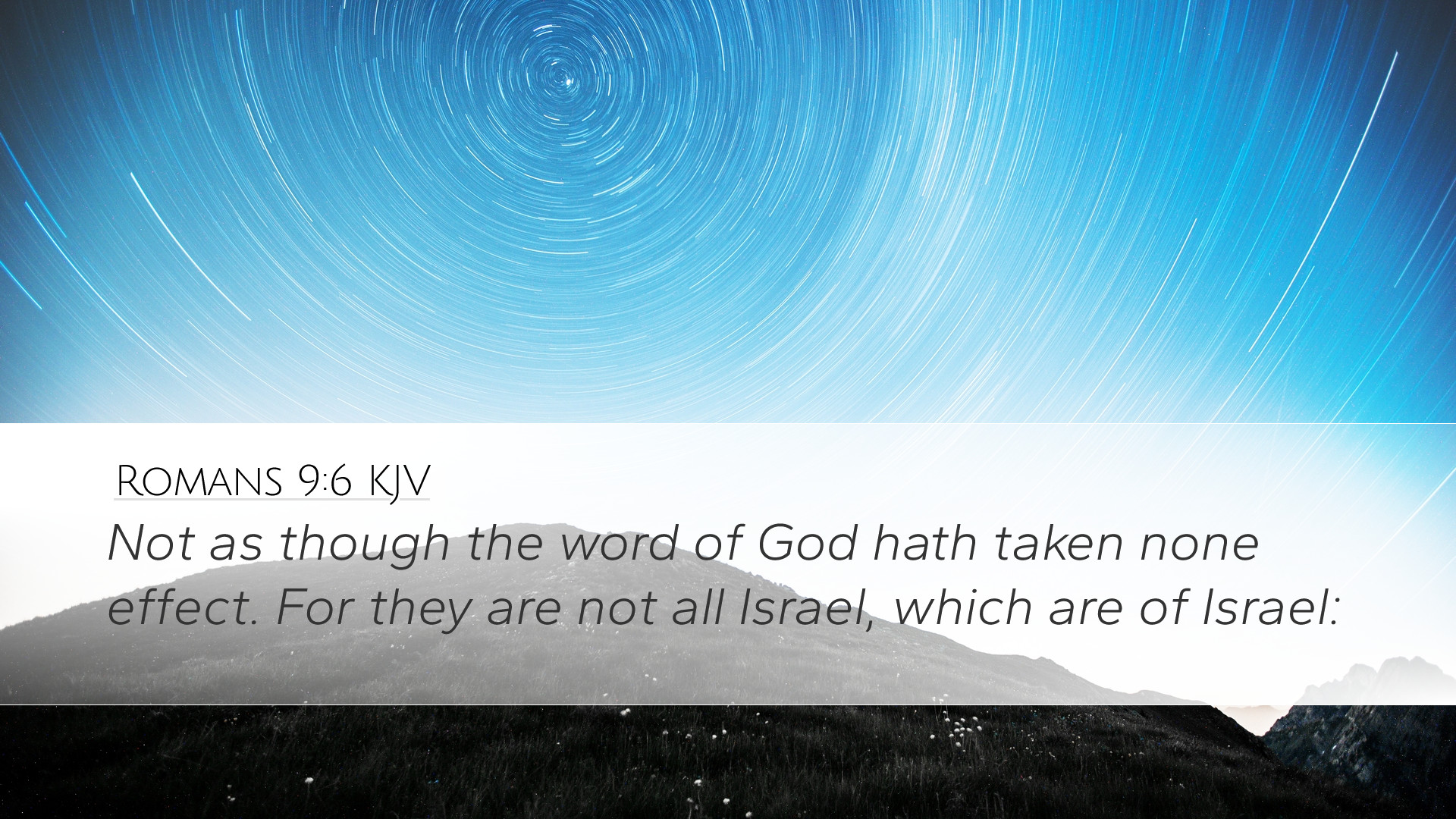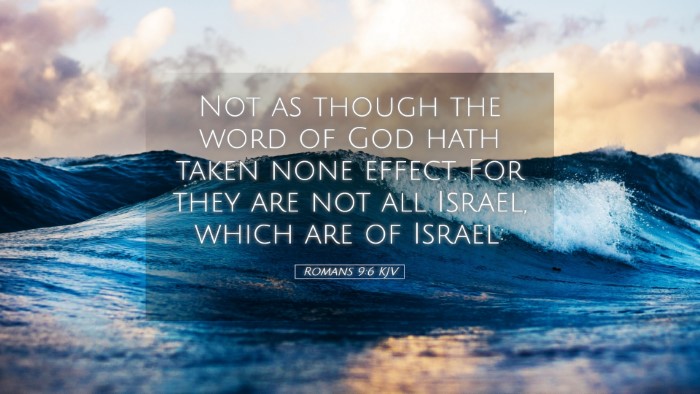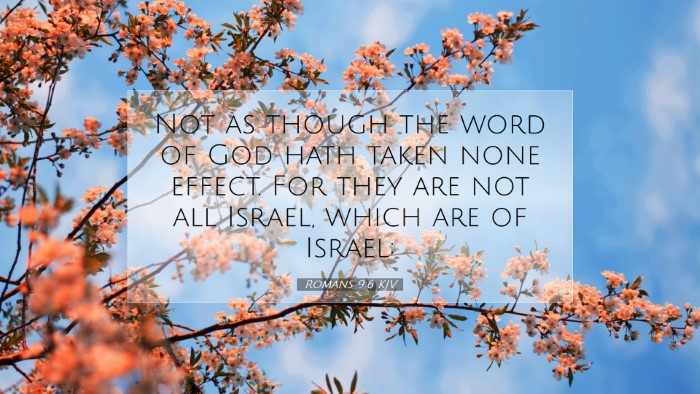Commentary on Romans 9:6
Text of Romans 9:6: "But it is not that the word of God has taken no effect. For they are not all Israel who are of Israel."
Introduction
This verse opens a deep and complex discussion regarding the nature of Israel and the covenantal promises of God, which are central themes in Paul's epistles. Romans 9:6 serves as a pivotal moment in Paul’s argument concerning the status of Israel and the true people of God. With insights drawn from public domain commentaries, we will delve into the theological and hermeneutical significance of this verse.
The Assurance of God's Word
Matthew Henry emphasizes that the assertion "the word of God has not taken no effect" carries profound implications. He argues that the unfaithfulness of some Israelites does not annul God’s promises. Henry notes, "Though many of the Jews have rejected Christ, yet God's promise is not voided; the true Israel recognizes Christ."
Similarly, Adam Clarke underscores that Paul recognizes a distinction has to be made within Israel regarding God's covenant people. Clarke reflects, "Just because Israel has failed in their obligations, this does not negate the faithfulness of God's word."
The True Israel
The latter part of the verse discusses the identity of "Israel." Albert Barnes comments on the phrase "not all Israel who are of Israel," suggesting that there is an essential difference between those who are ethnically Jewish and those who embody the faith and spirit of God’s chosen people. He notes, "It is those who are children of promise, those who have faith in Christ, that constitute the true Israel."
This brings us to a critical theological distinction: being part of Israel is not merely a matter of ethnicity or lineage but hinges on faith and divine election. Adam Clarke supports this interpretation, elaborating that the "true Israel" encompasses all who have faith in Christ, further indicating a shift from a purely ethnic understanding to a spiritual one.
Theological Implications
One of the profound theological implications of this verse is the doctrine of election. Matthew Henry explains that God's sovereign choice of His people transcends human understanding and expectations. He writes, "It depends not on the blood of Abraham, but on the faith of Abraham that one is counted among the faithful."
Barnes adds to this discussion by suggesting that God’s promises are akin to a remnant of grace amidst a larger group, thereby affirming the idea that the church is the new covenant people of God. This notion fosters a broader understanding of divine inclusion that extends beyond ethnic boundaries.
Application for Pastors and Theologians
For pastors and theologians, Romans 9:6 challenges the prevailing assumptions about membership in God's covenant family. It invites reflection on the nature of faith and identity in Christ. Recommendations for application include:
- Preaching Grace: Highlight the distinction between cultural or ethnic identity and spiritual faith in Jesus Christ. Encourage congregations to rely on God’s grace rather than their own heritage.
- Nurturing Faith: Foster environments that emphasize spiritual rebirth and faith as the true markers of God's people.
- Outreach and Inclusion: Embrace a missional perspective that focuses on reaching all people, emphasizing that God’s promises extend beyond ethnic lines.
Conclusion
In Romans 9:6, Paul not only affirms the unwavering nature of God's word but also redefines the understanding of who constitutes Israel. By distinguishing between the ethnic and faithful components of God’s people, this verse provides profound insight for contemporary believers. Engaging with the rich commentary of Matthew Henry, Albert Barnes, and Adam Clarke helps illuminate the full spectrum of meaning within this text, offering encouragement and direction for life in the broader covenant community.


